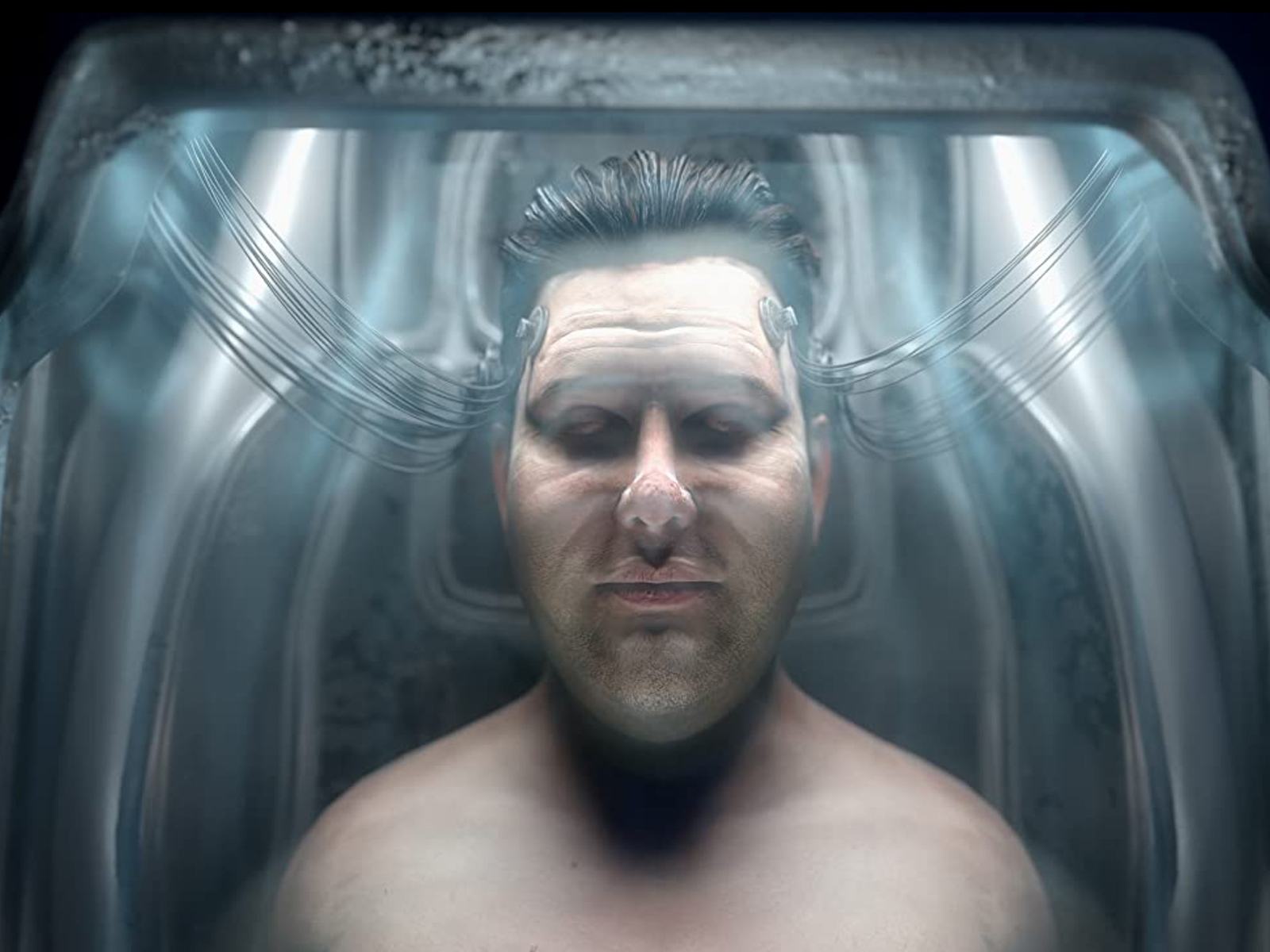
- Festivals
Sundance 2021: A Glitch in the Matrix
The closing credits, featuring some of the names of the filmmakers juxtaposed on a cave wall, beneath the sound of a crackling fire, speak in a powerfully direct and simple way to the need for storytelling, which is long hardwired into mankind. So, is this director Rodney Ascher’s sly way of acknowledging that his latest film, A Glitch in the Matrix, is itself an exercise in flamboyant narrative indulgence, despite its nonfiction roots?
If so, it’s perhaps too cute by half, but also emblematic of the fitful engagement of this intellectually playful yet ultimately frustrating documentary, which unfolds as a mixture of epistemological surveying and philosophical spitballing. The subject under the microscope of Ascher’s third feature film – set to release on VOD and in limited theatrical engagements via Magnolia Pictures on February 5, following its world premiere in the Midnight Section of the 2021 Sundance Film Festival – is “simulation hypothesis,” which is catnip to anyone who likes to ponder the universe and/or the nature of human existence. In a nutshell, this theory proposes that all of our perceived physical reality, both on Earth and the rest of the universe, is in fact a computer simulation.
Ascher comes to the topic of conspiracy theories, hidden messages, and unsettling psychological rabbit holes with considerable experience and success, having previously directed the documentaries Room 237, about various interpretations of Stanley Kubrick’s The Shining, and 2015’s The Nightmare, about whether some people suffering from sleep paralysis are in fact victims of extraterrestrial abduction or other supernatural encounters. For his latest effort, Ascher cycles through the rich history of the premise and some of its underpinning reasoning, from Plato’s Allegory of the Cave to the works of René Descartes and Philip K. Dick. The latter, in fact, receives quite the platform, with archival footage from a 1977 appearance in France where he delivered a lecture on what he insisted were recovered memories from an alternate present.
The filmic equivalent of a batted-about ball of yarn, A Glitch in the Matrix seems, in a certain way, handcuffed by tonal ambivalence; even though it was reputed to be finished prior to the COVID-19 pandemic, its editing feels at times uncertain, with choices arrived at in either haphazard or committee fashion. Sometimes it sidles up to a point or breakthrough before abruptly stepping back while other times it loops back on itself, creating pockets of unnecessary narrative repetition.
Ascher also leans on several interview subjects who prove to be less interesting and worthwhile vessels for exploration for simulation hypothesis than either he, or they, might believe – conflating meandering if colorful theories about video game non-player characters and anecdotes about statistical implausibility’s with signs of validation. In a bold stroke, the filmmaker obscures the faces of at least three of these interviewees with motion-captured 3-D animation, turning them into hybrid animal-human avatars for the duration of the movie. The fact that some subjects – like philosophy professor Nick Bostrom, whose 2003 essay “Are You Living a Computer Simulation?” was and remains a touchstone for simulation theory proponents. As such it feels, whether intentionally or not, like an act of separative commentary. It draws a line between boozy late-night speculation and more grounded, serious-minded inquiry.
The model illustrations, as well as other animated segments, all overseen by Lorenzo Fonda and Davy Force of Mindbomb Films, give A Glitch in the Matrix a certain fizzy sheen, like a SEO-friendly YouTube video that might pop up on a Reddit thread on the topic. But Ascher’s movie is most interesting and successful when both digging down into the explosion in popularity of simulation hypothesis following the release of 1999’s groundbreaking The Matrix and assaying the downstream moral and empathetic consequences of believing that we live in a computer simulation. After all, what is truly right and wrong if we are actually 1s and 0s? The former is examined in compelling fashion both through an engaging academic-cinematic lens, while the latter is grappled with by numerous authors, philosophers and even adherents.
At the intersection of these two threads is the case of Joshua Cooke, a disaffected teenager who in 2003 murdered his parents and later briefly, before pleading guilty, invoked what would be described as “The Matrix Defense,” claiming that his actions were the result of a Hollywood-fed belief in splintered reality. His clear-eyed, audio-only interviews, on a phone from prison, lend a much-needed emotional ballast to a work that is otherwise almost wholly conjectural. If A Glitch in the Matrix sometimes yields too much time to the crowd-sourced, message board populist version of its subject, it’s still bound to serve as a debate-starter. And maybe, after a hectic and upended 2020, that’s the conversation “they” now want us to have?

